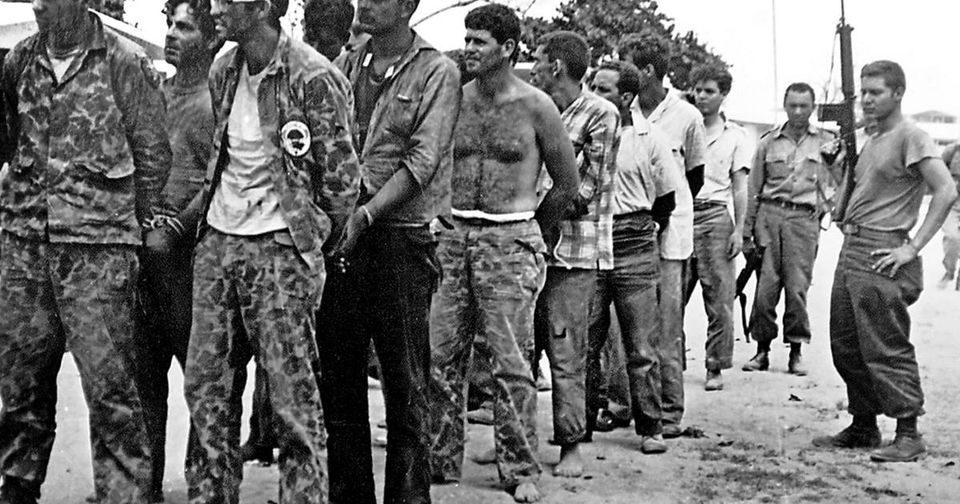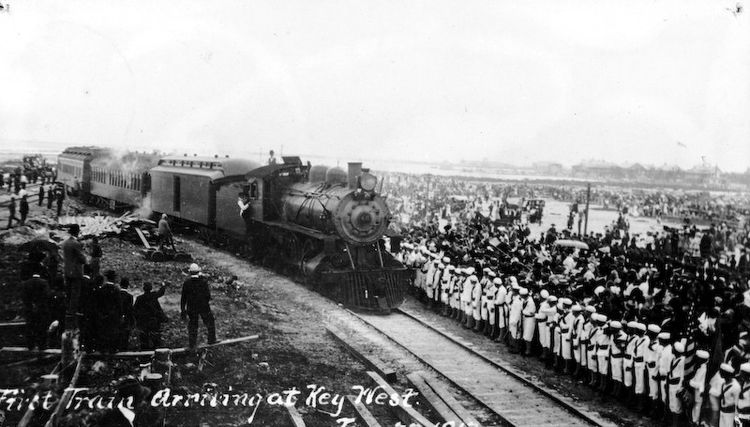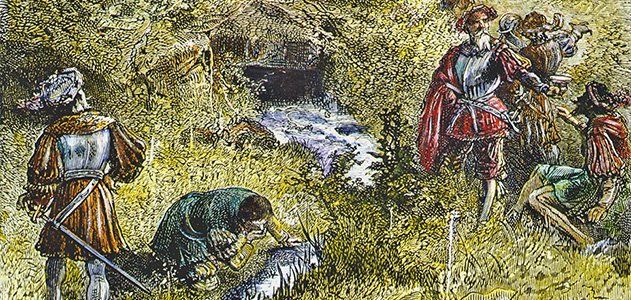History Week of April 16-22

The Bay of Pigs April 17, 1961
This week in Florida marks one of the most consequential moments in American history. An event associated with the assassination of John F. Kennedy, the Watergate Break In, and so much more: The Bay of Pigs invasion on April 17, 1961. Originally conceived by President Dwight D. Eisenhower and handed off to a reluctant President, John F. Kennedy, the planning of the infamous invasion went through several iterations over multiple years before that fateful day in April of 1961.[2]Despite the planning over two American presidential administrations, by the time the 2506 Brigade of Cuban expatriates eager to retake their homeland, who had secretly trained with the American CIA for months in Guatemala, the invasion was doomed before the unit arrived in the bay.
The operation, code-named Operation Mongoose, used the JMWAVE CIA base 12 miles south of the University of Miami as its operations center. During the build-up to the invasion, that base in the Greater Miami area would become the CIA's largest in the world outside of its headquarters in Langley, Virginia.
Among the issues, Castro had opened a resort of previously secluded landing site of the invasion. So, when the 2506 Brigade arrived the location was “lit up like Coney Island,” according to a “frogman” tasked with prestrike demolition for landing equipment.[3]
The plan had called for three waves of airstrikes to take out Castro’s air support, but Kennedy, who was involved in what one author described as “an almost Hamlet-like internal struggle over the invasion’s propriety and prospects for success,” balked at the thought of air strikes implicating the United States in the invasion. [4]Among Kennedy’s greatest concerns was the United States being implicated by the Soviet Union, leading Kennedy to call off most air strikes meant to cripple Castro’s air force.[5]Whether because the ships of the invasion had already launched when Kennedy made this fateful decision or because of “the CIA’s view that Cubans were never to be trusted,”[6]despite entrusting 1400 of them to the literal invasion of another country, the men of the 2506 Brigade didn't find out the air strikes were called off until they were on the shore being hounded by Cuban military aircraft.
What’s more, the Castro knew they were coming and when the men arrived on the beach they were met by klieg lights and machine gun fire.[7]As one navy admiral radioed the Pentagon, “Castro is waiting on the beach.”[8]Three days later, 114 of the original 1400 men to have landed in Cuba in the CIA attempt to overthrow Castro were dead, and 1,189 others were captured.[9]
As the State Department reports on its website, “The failed invasion strengthened the position of Castro’s administration, which proceeded to openly proclaim its intention to adopt socialism and pursue closer ties with the Soviet Union. It also led to the Kennedy administration's reassessment of Cuba policy.”[10] Over a year later, this invasion was one of the many complicated backdrops leading to the Cuban Missile Crisis. It was as that crisis was finally waning that the nearly 1200 members of the 2506 brigade who had been captured finally started to hear rumors they might be released, which finally happened around Christmas of 1962, when their nearly year-and-a-half-long ordeal ended in an Air Force Base just outside of Miami, Florida.[11]
Still, the ordeal permanently changed the relationship of Cuban expatriates with the United States. One of the books I draw from in this account is about the Cuban Mafia. In the opening pages the reporter who wrote the (gripping, fascinating) book, The Corporation: an Epic story of the Cuban American Underworld, T. J. English introduces the book stating, “The story of Cuban organized crime in America has its roots in what would become known as the Bay of Pigs invasion.”[12]
Honestly, because of its lasting impact on the United States and Cuba, the failed Bay of Pigs invasion is one of the more important dates in US History, a history that should make everyone uncomfortable. There’s simply no way I can do it justice.
[1]for instance, in Spanish “la” and “el” are both the word “the,” with the former being used for feminine nouns, so “la silla,” for chair, “el boligrafo” for pen
[2] English, The Corporation, 2.
[3] Ferrer, Cuba, 355.
[4] English, The Corporation, 2.
[5] Ferrer, Cuba, 362.
[6] de los Angeles Torres, In the Land of Mirrors, 58.
[7] English, The Corporation, 6.
[8] Ferrer, Cuba, 356.
[9] Ferrer, 362.
[10] Office of the Historian, “The Bay of Pigs Invasion and Its Aftermath, April 1961 - October 1962.”
[11] English, The Corporation, chapter 1, 22-23.
[12] English, Introduction, 11.


